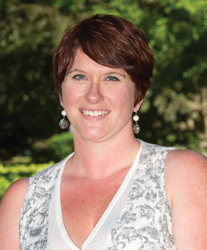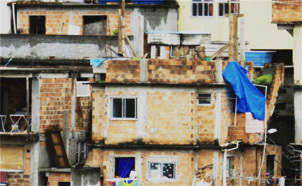
An old adage is being put to the test in a way that could change the lives of millions of people. As part of a National Science Foundation funded project titled “Open Sourcing the Design of Civil Infrastructure,” led by Tracy Kijewski-Correa, Linbeck Associate Professor of Civil Engineering and Geological Sciences at the University of Notre Dame, researchers are stepping outside the laboratory setting to seek answers to societal questions and also finally answer the question: Are two heads better than one?
“When you think about it,” says Kijewski-Correa, “it makes perfect sense. Even dedicated research teams can find themselves too close to a project. This is when tapping external sources — in this case crowdsourcing — is a cost-effective way to develop out-of-the-box solutions that can benefit mankind.”
One example of crowdsourcing, asking average citizens to become involved, in this particular project is the Shelters for All Competition: A Call to Deliver Safe, Affordable Housing to the World’s Poor. It was developed by Kijewski-Correa; Gregory Madey, research professor in computer science and engineering; David S. Hachen Jr., associate professor of sociology; post doctoral fellow Zack Kertcher and their students using concepts from open sourcing and crowdsourcing to help them propose and assess new civil infrastructure systems for developing countries.
Shelters for All, which runs until Jan. 15, 2012, seeks innovative solutions to the urban housing crisis in the world via conceptual designs for homes to be used by the more than 1 billion people that live in urban slums worldwide. These areas, most of which are in developing countries, cannot support the influx of people and are so densely populated that they cannot hope to provide adequate shelter, safe drinking water, proper sanitation or other basic necessities.

People are trapped in substandard living conditions. This competition challenges participants to design low-cost and safe housing that fits the cultural context of the communities in which the homes will be built.
Contest rules are posted here. More than $15,000 in prizes will be awarded.
In addition to developing solutions to a societal need, the researchers will also be developing evidence as to the nature and functions of crowdsourcing and how it can be leveraged to solve other grand challenges.
Contact: Tracy Kijewski-Correa, associate professor, 574-631-2980, tkijewsk@nd.edu